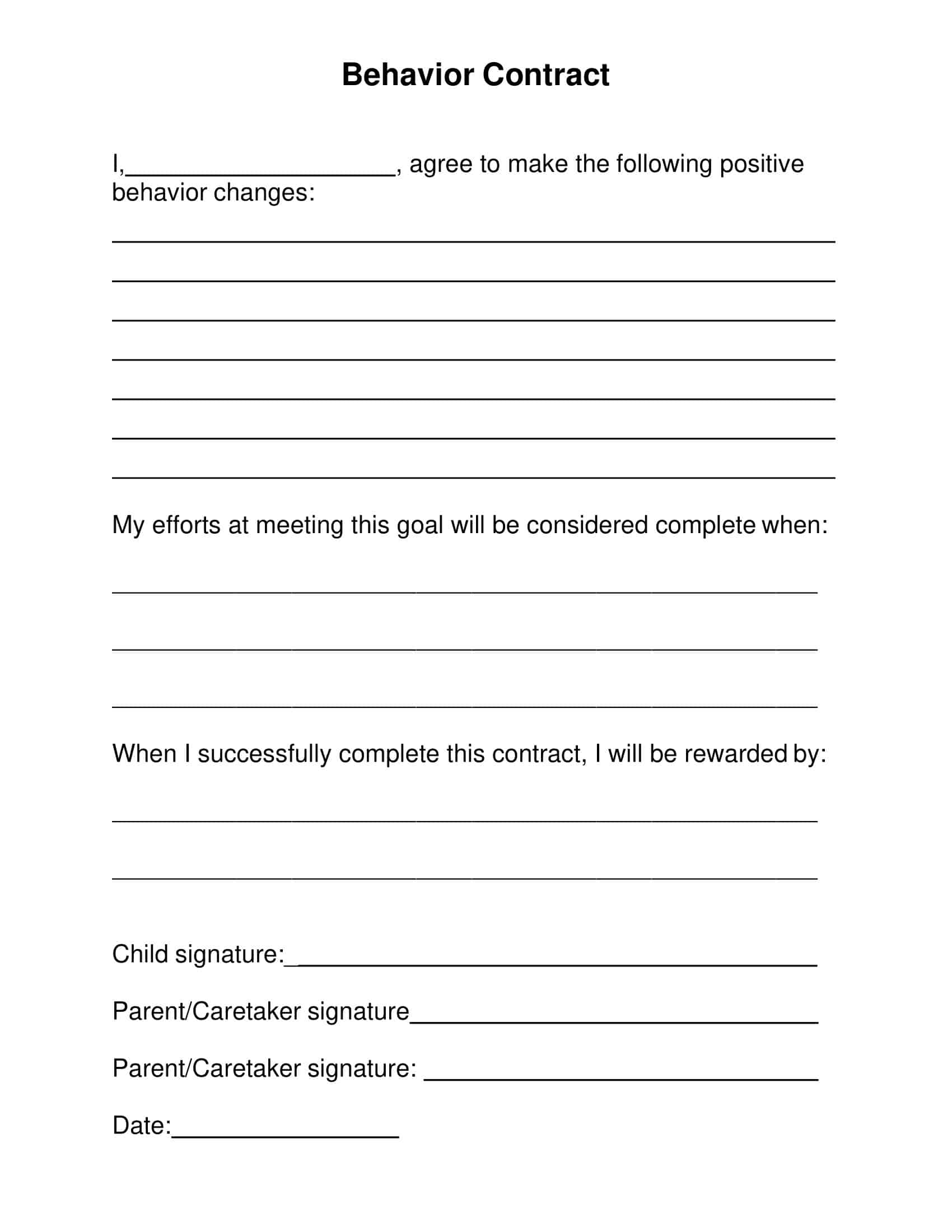
Regarding personal growth and development, having clear expectations and consequences is crucial. A behavior contract provides a structured framework for individuals to understand what is expected of them and the consequences that follow their actions.
By clearly defining the terms and conditions, behavior contracts establish a foundation for accountability and responsibility.
What is a Behavior Contract for Adults?
A behavior contract for adults is a written agreement that outlines the expectations and consequences of an individual’s behavior. It serves as a tool to help individuals understand the behavioral standards they need to meet and the potential outcomes if those standards are not met.
These contracts are typically used in various settings, including workplaces, educational institutions, and personal relationships.
Why Use a Behavior Contract for Adults?
Behavior contracts are beneficial for several reasons:
- Clarity: A behavior contract clearly defines what is expected of an individual, leaving no room for ambiguity or misunderstanding.
- Accountability: By establishing clear expectations and consequences, behavior contracts promote personal accountability.
- Structure: These contracts provide a structured framework that helps individuals stay focused and motivated to meet their goals.
- Conflict Resolution: When conflicts arise, behavior contracts can serve as a reference point to resolve disputes and find mutually agreed-upon solutions.
- Goal Setting: Behavior contracts can be used as a tool for setting and achieving personal or professional goals.
How to Create a Behavior Contract for Adults
Creating a behavior contract for adults involves several steps:
1. Define the Behavior
Clearly define the behavior that the contract will address. Be specific and avoid vague terms or generalizations. For example, if the contract is for workplace behavior, specify the actions or attitudes that are expected or unacceptable.
2. Establish Expectations
Outline the expectations and standards that the individual needs to meet. Use clear and concise language to ensure there is no confusion. It’s helpful to include examples of desired behavior to provide clarity.
3. Set Consequences
Determine the consequences that will follow if the individual fails to meet the expectations outlined in the contract. Consequences should be fair, reasonable, and proportional to the behavior. It’s important to clearly state the consequences to avoid any misunderstandings.
4. Include a time frame
Specify the duration of the behavior contract. Whether it’s a fixed period or ongoing, make sure to include the start and end dates. This helps both parties stay accountable and provides a sense of structure.
5. Sign and Date the Contract
Once the behavior contract is complete, both parties should sign and date it to indicate their agreement and commitment. This signature signifies a mutual understanding and acceptance of the terms and conditions.
6. Review and Revisit
Regularly review the behavior contract to ensure it is still relevant and effective. Make adjustments as necessary and revisit the contract periodically to assess progress and make any necessary updates.
Examples




Tips for Successful Implementation
To ensure the successful implementation of a behavior contract, consider the following tips:
- Communication: Communicate the expectations and consequences to all parties involved.
- Consistency: Apply the terms and conditions of the behavior contract consistently to maintain fairness.
- Support: Provide support and resources to help individuals meet behavior expectations.
- Regular Check-Ins: Schedule regular check-ins to review progress, address any concerns, and provide feedback.
- Positive Reinforcement: Acknowledge and reward individuals who consistently meet the behavior expectations.
- Open Dialogue: Encourage open dialogue and feedback to foster a collaborative and supportive environment.
In Conclusion
A behavior contract for adults is a valuable tool for establishing accountability and responsibility. It provides a structured framework that helps individuals understand what is expected of them and the consequences that follow their actions.
By creating clear expectations and consequences, behavior contracts promote personal growth, development, and positive change.
Behavior Contract Template for Adults – Download